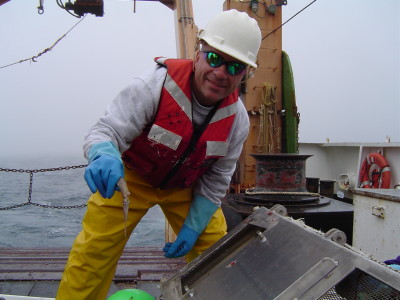NSU Newsroom
SharkBytes
Horizons
This version of NSU News has been archived as of February 28, 2019. To search through archived articles, visit nova.edu/search. To access the new version of NSU News, visit news.nova.edu.
This version of SharkBytes has been archived as of February 28, 2019. To search through archived articles, visit nova.edu/search. To access the new version of SharkBytes, visit sharkbytes.nova.edu.
NSU Researchers Receive $8.5 Million to Study Oil Spills
 Nova Southeastern University’s (NSU) Oceanographic Center is home to some of the world’s top marine biology and ocean ecosystem researchers and experts. Now those research efforts are being given a boost, thanks to a financial award from the Gulf of Mexico Research Initiative (GoMRI.) NSU is one of 12 organizations selected to receive part of $140 million for continued research in the area of oil spills and how we respond to them.
Nova Southeastern University’s (NSU) Oceanographic Center is home to some of the world’s top marine biology and ocean ecosystem researchers and experts. Now those research efforts are being given a boost, thanks to a financial award from the Gulf of Mexico Research Initiative (GoMRI.) NSU is one of 12 organizations selected to receive part of $140 million for continued research in the area of oil spills and how we respond to them.
“The world’s oceans are changing as a result of many global and varied local and regional pressures,” said George L. Hanbury II, Ph.D, president and CEO of NSU. “The Deepwater Horizon oil spill event has posed a significant, but yet unquantified stress to the ocean life essential for Florida and the nation. Thanks to this substantial award from the Gulf of Mexico Research Initiative, NSU will soon be developing urgently needed knowledge to evaluate deep-sea fish and other organism impacts after a significant oil-spill disturbance. This information is essential for valuing the resources of the deep sea and for understanding oil spill mitigation activities.”
The NSU-led research consortium, entitled Deep-Pelagic Nekton Dynamics of the Gulf of Mexico (DEEPEND) will be directed by Tracey Sutton, Ph.D., an associate professor at NSU’s Oceanographic Center. The research of the consortium will be focused on the pelagic (open ocean) realm, from the surface to depths of over one mile, which is by far the largest ecosystem component of the Gulf of Mexico. The consortium will examine the biological communities of the deep Gulf with respect to space and time, using a variety of techniques, and relate these findings to disturbances, both natural (e.g. season, river input, major currents) and human-made (e.g. Deep Water Horizon Oil Spill) in order to understand the short- and long-term consequences of such events such on the health of the Gulf.
“The deep Gulf of Mexico is an amazing ecosystem, with biodiversity as high, or higher, than any ecosystem of its kind, according to our current knowledge,” Sutton said. “We are still discovering new species within its depths after over 200 years of investigation. It behooves us to better understand its nature and functioning, as the societal benefits of the Gulf in its entirety are enormous.”
Sutton and NSU Oceanographic Center scientists Tamara Frank, Ph.D., Joseph Lopez, Ph.D. and Mahmood Shivji, Ph.D. will team with scientists from Florida International University (Drs. Kevin Boswell and Heather Bracken-Grissom), Texas A&M University (Drs. Ron Eytan, Jay Rooker and David Wells), the University of South Florida (Dr. Chuanmin Hu), the University of South Florida, St. Petersburg (Heather Judkins, Ph.D.), Florida Atlantic University (Jon Moore, Ph.D.), the U.S. Naval Research Laboratory (Drs. Brad Penta and Sergio deRada), and the San Antonio Zoo (Danté Fenolio, Ph.D.) to produce exciting discoveries from the oceanic Gulf that will be accessible to the public and scientific communities, and with substantial educational outreach.
GoMRI is a 10-year research initiative established in 2010 and funded by a $500 million commitment by BP. GoMRI is administered by an independent Research Board, which consists of 20 experts in science, research administration, and public health. The Research Board evaluates research proposals following merit review guidelines of the National Academies of Science and procedures similar to those of the U.S. National Science Foundation. All funding decisions are made by the Research Board, which is independent of BP and not connected to the Natural Resources Damage Assessment process.
